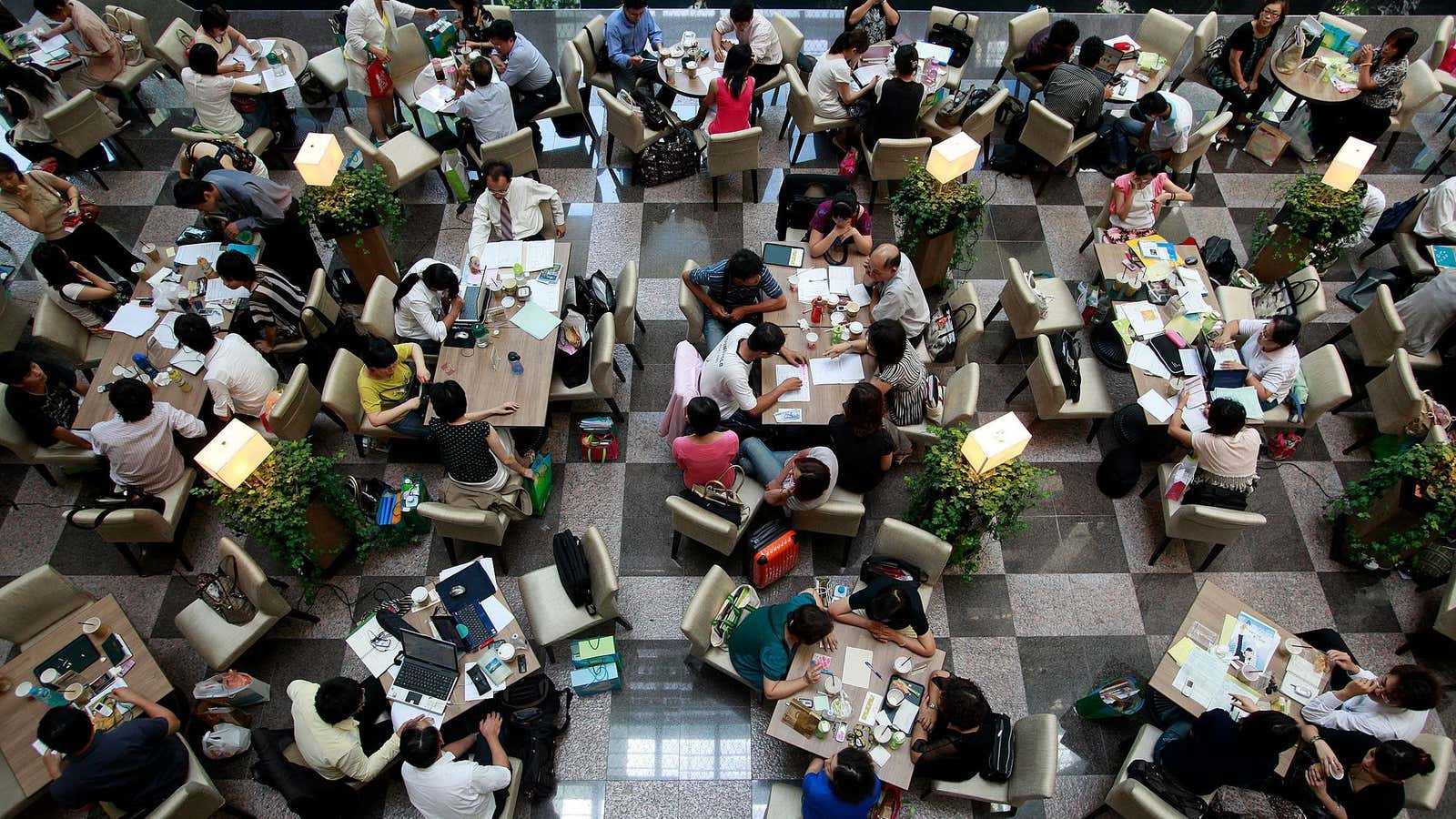As Taiwan grappled with its worst Covid-19 outbreak, communications strategist Katherine G. received a company-wide email that failed to quell her fears: “To remind you, work from home does not mean resting at home.”
The multi-million-dollar tech firm where she works, and which she declined to name, is denying employees’ pleas to go fully remote as the number of daily cases climbs to 335 on Monday. Although still a small case count, compared to other countries, the triple-figure spike over the weekend—up from just 29 cases on Friday—is stoking widespread panic-buying and strict pandemic restrictions throughout the island. The island could even see its first lockdown.
Taiwan doesn’t suffer from a threadbare healthcare system or poor government management when it comes to Covid-19. But an old-fashioned work culture that overly values face-to-face time could hamper its efforts to quickly control the virus’s current wave. As in many parts of Asia, employees are expected to be physically present as much as possible, regardless of the actual necessity of being there. But unlike in many other places, Taiwan didn’t have to learn to contend with working from home last year, because the government so quickly controlled the virus early on.
That corporate preference appears to be shaping government policy.
By government order, all schools must shift online from tomorrow (May 19) until May 28, public facilities such as libraries and community centers are shutting down, and non-essential shops are closing their doors. But companies that house less than 500 workers at any given time inside their offices are still being allowed to operate. Instead of opting for a fully remote workforce, Taiwan’s biggest companies are taking the middle road—creating a rotating schedule in which employees take turns coming into work and working from home, swapping daily or weekly.
In addition, while the government is requiring employers to give special “disease prevention” leave to staff who have to care for young children while schools are shut, it’s leaving it up to companies to decide whether such time would be paid or unpaid.
Despite a strong preference to hunker down and stay at home, subways and roads are still filled with commuters who have no choice but to come to work.
Taiwan’s health minister Chen Shih-chung has hesitated to issue a blanket, one-size-fits-all policy, citing large differences in business sizes and models, instead advising companies put their own pandemic plans in place based upon the guidance of Taiwan’s Centers for Disease Control. At a press conference on Sunday he offered one caveat: “If employees are unwell, companies should not make it difficult for employees to ask for leave.”
Over the past year, Taiwan has garnered global praise for its comprehensive Covid-19 response. As other countries scrambled into snap lockdowns and struggled with overwhelmed hospitals, Taiwan leaned into mass mask use and robust contact tracing early on. However, with the finish line nearly in sight, this rare pandemic success story is starting to falter. Employees say corporate inflexibility could hinder rather than help Taiwan’s Covid-19 fight.
To their credit, several big companies, from iPhone maker Foxconn to the Taiwan Semiconductor Manufacturing Company (TSMC), have already made adjustments, including roping off common areas where people could gather like company cafeterias, banning outside visitors, and enforcing social distancing measures. Employees are also required to wear masks at all times inside the premises.
These companies did not respond to Quartz’s requests for comment.
Quartz has also reached out to the Taiwan CDC to ask how it’s advising workplaces on matters related to ventilation, given the newest information about how Covid-19 is transmitted.
Still, despite some changes, face-time culture and overtime work remain stubborn hallmarks of Taiwan’s corporate environment.
Hotel worker Han Wen says he heard from former colleagues that a manager at a hotel where he used to work just announced that employees will not be paid if they choose to work from home to look after their children who are now homebound.
“Most bosses or managers here like to see their workers sitting at their seats in front of their computers, even though they’re not actually working,” he said.
